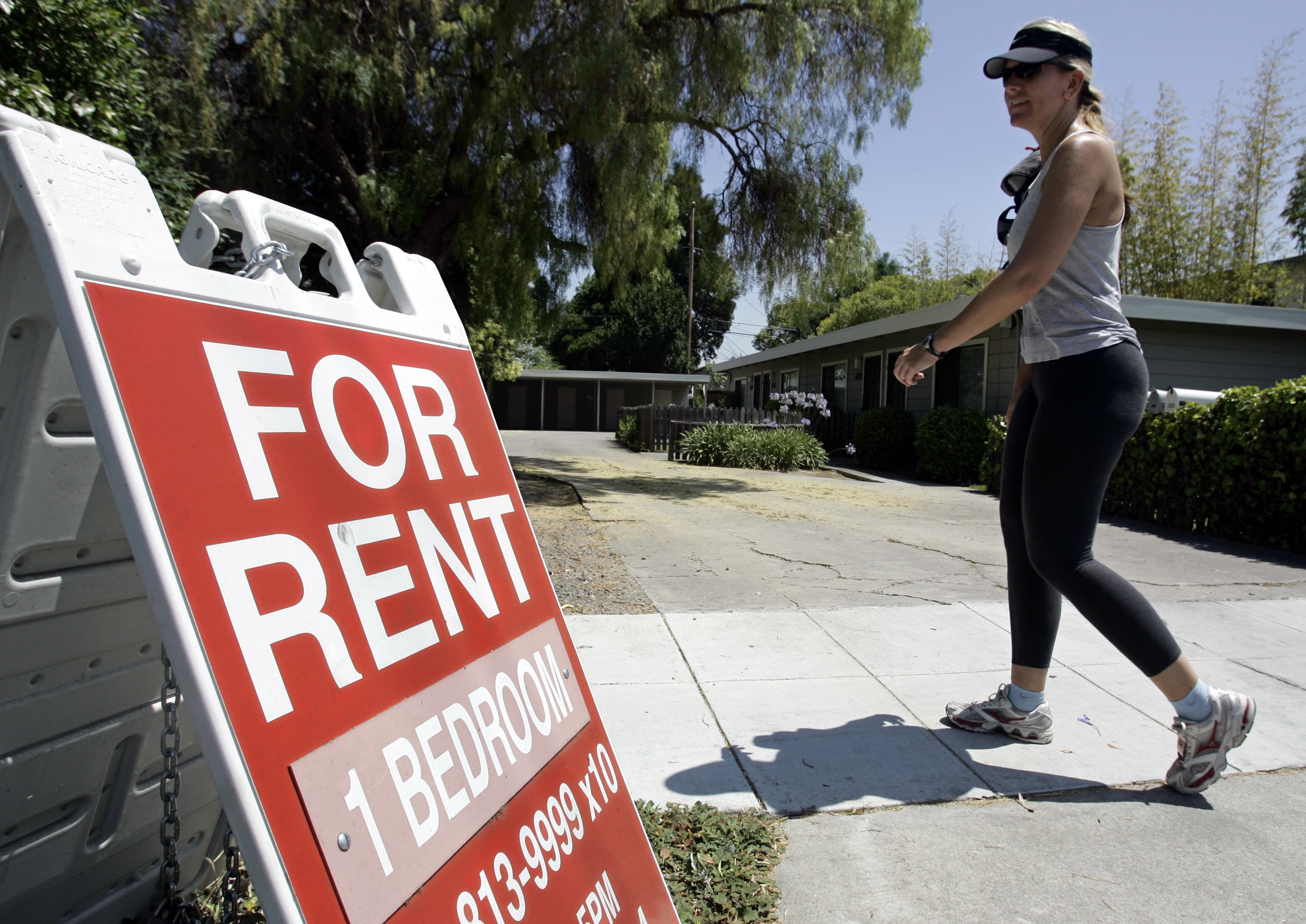A woman walks next to a “For Rent” sign at an apartment complex in Palo Alto, California.
Paul Sakuma | AP
In the D.C. suburb of Chevy Chase, MD, a massive apartment rental and condominium complex is going up, and apparently it can’t happen fast enough. Demand for rental apartments in and near cities across America is soaring, just when most thought it wouldn’t be. The expectation was that rental demand would fall as millennials aged into their home buying years.
Apartment demand in the second quarter of 2019 spiked 11% from a year ago. That, in turn, pushed rents up an average 3% nationally to $1,390 per month, according to RealPage, a real estate software and analytics company.
“Demand is proving especially strong in this year’s primary leasing season,” according to RealPage chief economist Greg Willett. “Solid economic growth is encouraging new household formation, and rentals are capturing a sizable share of the resulting housing demand. At the same time, loss of existing renters to home purchase remains limited relative to historical levels.”
Despite the increase, a record 82% of renters say renting is more affordable than owning, according to a new survey from Freddie Mac, up from 67% just a year ago.
“Affordability remains the essential factor when it comes to determining whether to rent or purchase a home, and the cost of housing is having a significant impact on households of every age, size and location,” said David Brickman, president and CEO of Freddie Mac. “For millennials and many Gen Xers, buying a home is no longer just a decision based on housing and housing costs — increasing pressure from student loans and the rising cost of child care are having a significant impact.”
Rental demand is currently highest in the nation’s largest cities, with Dallas/Fort Worth, Chicago, Houston, New York City and Washington, D.C. leading.
A large apartment complex under construction in Chevy Chase MD, a close-in DC suburb.
Diana Olick | CNBC
“The metrics that we’ve seen this year have been off the charts,” said Toby Bozzuto, CEO of the Bozzuto Group, which currently has over a billion dollars-worth of residential, Class A construction in the works across the north and southeast. Bozzuto’s Chevy Chase development will offer 530 residential units comprised of 466 apartments, 64 condominiums and over 100,000 square feet of retail and restaurants. It is also connected to a metro rail line, which is exactly what today’s renters—both millennials and downsizing baby boomers—want.
“I think millennials ultimately aspire to have homes. I think it’s still the American dream, but I call it the dream deferred and it’s deferred because of student loans, the lack of having a large amount of equity, and they also enjoy flexibility versus fixity,” said Bozzuto. “This is a generation that likes a sharing economy. They use Uber instead of their own car, so apartments appeal to their needs, flexibility and their desires.”
Apartment construction began booming back in 2014, and hasn’t pulled back much despite concern that lower mortgage rates would push renters to buy. There is still a lot of new product in the pipeline, which does pose a risk to developers, especially as construction costs rise and a slowing economy makes it harder to raise rents.
While apartment construction is booming, single-family home construction is not. Homebuilders are still under-building for the amount of demand, blaming high costs for land, labor, materials and regulation compliance. A shortage of affordable existing homes for sale in the last several years has pushed prices into the overheated range.
The shortage began to ease slightly in the past year, but seems to be worsening again. The inventory of homes for sale fell in June annually, the first such drop in 10 months, according to Redfin. That may be because a sharp drop in mortgage rates caused homebuying to surge in the late spring.
“The only issue is that as rates go down you still have low inventory and that’s going to limit sales, so prices are going to go up, sales will not be as strong,” said Glenn Kelman, CEO of Redfin in a recent interview on CNBC.

